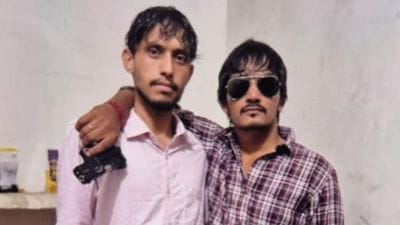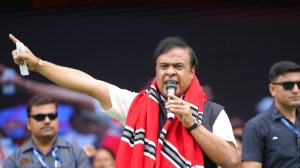Why Ranas’ form is a shot in the arm
Ever since he shot his first gold in centre-fire pistol in the Hiroshima Asiad in 1994, his stock went sky-high. Yet, a few branded his achi...

Ever since he shot his first gold in centre-fire pistol in the Hiroshima Asiad in 1994, his stock went sky-high. Yet, a few branded his achievement as an aberration. No doubt, the odd international medals kept him going, his distractions — campaigning for his father in local bypoll in his home state and his gimmick of joining the BJP — notwithstanding. For a while, it seemed he had lost the killer instinct and people started writing him off without realising that he only needed to regroup himself.
From a prodigy in 1994, Jaspal Rana has come a long way. With the Bangkok Asiad just a few months away, he is looked upon as India’s best medal prospect. But before that the Fort Benning Grand Prix, followed by the World Cup in Atlanta and the Commonwealth Games in Kuala Lumpur are occassions in which he has to prove that he has not lost his precision as yet.
The recent National Shooting Championship in Delhi reiterated this point rather succinctly. There were several shooters who performed far above expectations, but there was nothing like Rana’s feat. He grabbed four individual gold and silver and as many team gold and silver medals. But what was most satisfying for him was the gold in rapid fire pistol. It was not only his maiden effort in the event but it had come against heavy odds. Lying fourth among eight finalists, he had to give it all against the experienced Army shooters, Bhanwar Lal Dhaka and Ajab Rao and Poonam Kumar of BSF.
He could have added one more gold to the tally but lost out to Satendra Kumar of the Navy in free pistol. Putting that memory behind, an elated Jaspal said: “This gold (rapid fire pistol) gives me the maximum satisfaction. The recent, month-long training in Australia has certainly helped me do well in the final.”
Though he had seven 10 plus shots in the final, he realised the potential of the experienced rivals and said he was hoping for better results. “You cannot relax for a second. During the first course of shots, the windy conditions played spoilsport. But then it (the condition) was the same for all,” he said. He also conceded that he was a bit nervous before the final.
“But I knew I had to compete against myself and not my rivals,” he added. That, in fact, speaks volumes about his confidence. Naturally, the immediate task for him is to be in top shape for the Fort Beginning and Atlanta events. Once he is back in Delhi he will spend more time at the range, practising for the Commonwealth and Asian Games.
During the Nationals here, Jaspal’s presence immensely helped brother Subhash and sister Sushma to bring out the best in them.
Subhash, a student of the College of Vocational Studies, was at his best when he dominated the junior events, bagging three gold and silver medals, which included a gold in the rapid fire pistol. Though Sushma may not have achieved what her brothers have, she has already served notice that she is not far behind them.
A management student at the same college, Sushma won the sports pistol individual gold for the juniors apart from a couple of silver medals and helped Delhi win the team gold and silver medals. She could have bagged the gold in the Open event as well but 33-year-old Dr Saroja Kumar, a captain in the Army from Mhow Cantt, pipped her 661.4-654.7. This was despite the 18-year-old’s effort of 98.7 in the final to Saroja Kumari’s 95.6, for the latter had a substantial lead of 10 points (566 against 556 of Sushma) going into the final.
Coming from a family of shooters, Sushma thinks that it has its advantages as well as disadvantages. The advantage is that she has her brothers and father, N.S. Rana, to give her personal attention. But the disadvantage is that the expectation is too much. “I have to keep that in my mind and train hard to achieve goals,” she said.
Not surprisingly, the two Rana juniors figure in the list, along with Jaspal, sent by the National Rifle Association of India to the Sports Ministry for its approval for the two events early next month. This trip should come as a shot in the arm for the Ranas. And, as the discerning will vouch, nothing can substitute the exposure of a matchplay — at the World Cup level.
Photos


- 01
- 02
- 03
- 04
- 05




























